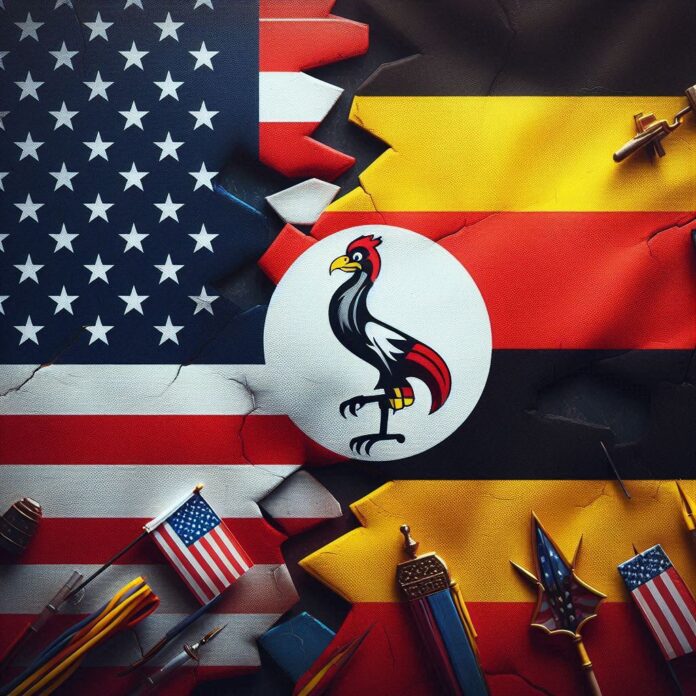In a significant move targeting corruption and human rights abuses, the United States has imposed sanctions on five current and former Ugandan officials. These individuals, including prominent government figures and a military leader, face repercussions for their alleged involvement in significant corruption and gross violations of human rights.
The Sanctioned Individuals:
Among those targeted by the sanctions are Speaker of Parliament Anita Among, former Minister of Karamoja Affairs Mary Goretti Kitutu, former Minister of State for Karamoja Affairs Agnes Nandutu, and Minister of State for Finance Amos Lugolobi. Additionally, the spouses of Among, Kitutu, and Lugolobi have also been subjected to sanctions. These measures come in response to accusations that these individuals abused their positions of power for personal gain, at the expense of the Ugandan people.
Reasons for Sanctions:
Former Deputy Chief of the Ugandan Peoples’ Defence Forces (UPDF), Peter Elwelu, also faces sanctions for his alleged involvement in a 2016 attack that resulted in the deaths of over 100 people. Elwelu’s designation underscores the U.S. government’s commitment to holding accountable those responsible for gross violations of human rights, regardless of their position or affiliation.
International Response:
These sanctions come in tandem with similar measures implemented by the United Kingdom against three of the sanctioned individuals. Among, Kitutu, and Nandutu face travel bans and asset freezes in both the U.S. and the UK. The coordinated action by both the U.S. and the UK underscores the severity of the allegations against these officials and their spouses.
Denial and Criticism:
In response to the sanctions, Speaker Anita Among has dismissed them as politically motivated, attributing them to her anti-homosexuality stance and her involvement in Uganda’s controversial anti-LGBTQ+ legislation. However, critics argue that such legislation violates fundamental human rights and threatens global rule of law. The imposition of sanctions has reignited debates surrounding Uganda’s human rights record and its adherence to international standards of democracy and governance.
Activists’ Perspective:
The sanctions have been welcomed by activists, including opposition leader Bobi Wine, who sees them as a step towards accountability for those responsible for the suffering of the Ugandan people. Wine hopes that more individuals and organizations complicit in human rights abuses will face similar consequences. For years, activists and civil society groups have been calling attention to human rights violations and government corruption in Uganda, urging the international community to take action.
Implications and Message
The U.S. sanctions send a clear message to the Ugandan government and the international community that the United States will not tolerate corruption and human rights violations. They serve as a reminder of the importance of upholding democratic principles and holding accountable those who undermine them, no matter where they may be. Furthermore, the sanctions demonstrate the U.S. government’s commitment to supporting transparency, accountability, and respect for human rights in Uganda and around the world.
Conclusion
The imposition of sanctions by the U.S. government against Ugandan officials marks a significant step towards combating corruption and human rights abuses in the country. These measures, supported by the international community, demonstrate a collective commitment to promoting accountability and justice for the Ugandan people. As the Ugandan government grapples with the repercussions of these sanctions, the world watches closely, hoping for meaningful reforms that will strengthen governance structures and uphold fundamental freedoms.
However, the effectiveness of these sanctions hinges on the response of the Ugandan government. Will they view them as an opportunity to address systemic issues and engage in constructive dialogue with the international community? Or will they dismiss them as external interference and continue down the path of impunity? The coming days will reveal the extent of Uganda’s commitment to reform and respect for human rights, shaping the country’s trajectory and its standing in the global community.


